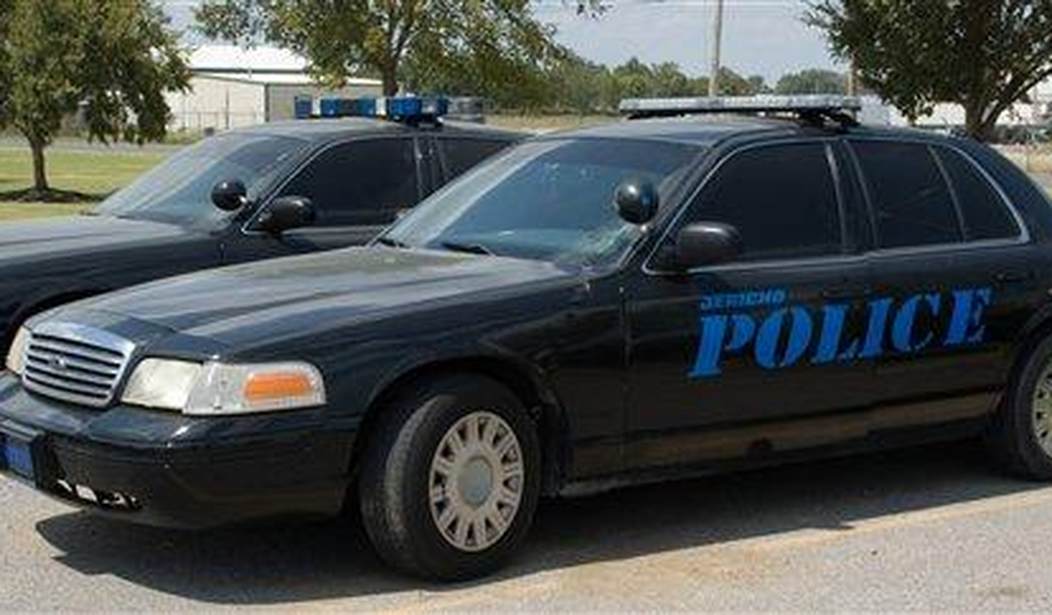If you can’t abolish the police, just abolish most of the work that they do. That seems to be the message coming from a report published by NBC News this week. I would suggest reading the entire thing to grasp what is actually a complex issue, but we’ll cover the basic gist of it here. The article focuses on a Black Chicago woman named Jessica Washington who lost her job in 2006 and moved to Las Vegas with her children for a fresh start. She got a job with the TSA and purchased a used BMW. Unfortunately, the car had a busted taillight and she wound up being pulled over and receiving a traffic ticket.
I realize this doesn’t sound like a breaking news headline thus far, but the story grows stranger from there. Washington didn’t pay her ticket and then went on to rack up enough traffic infractions to owe $4,431 in fines and more than ten thousand dollars in late fees. She had a bench warrant issued for her failure to pay and she’s convinced that this is all because of racism. But at the same time, her story does highlight the fact that some states and municipalities rely very heavily on the revenue they generate from traffic fines and fees.
Since moving to Nevada, Washington has received dozens of tickets totaling about $4,431, a debt that ballooned to more than $20,000 with additional fines and fees, according to data analyzed by a law clinic that recently began helping her. She has paid more than $11,000, and the clinic’s volunteer lawyers helped her get some of the fines and fees waived. But she still owes $1,886.
The system is “money hungry,” Washington, 37, said. “And it’s hard to dig your way out of that hole.”
Washington is among thousands of people in Nevada with warrants out for their arrest because they have not paid traffic tickets. And it doesn’t affect everyone equally: A 2003 study found racial disparities in traffic stops, with Black and Hispanic drivers more likely than whites to be pulled over statewide and in Las Vegas.
There are two elements to Washington’s story, one of which is the racism angle. She told NBC News that when she was first pulled over, the officer said “You’re going to get pulled over a lot driving this car.” She took that to mean that a Black woman driving a BMW would be a target for law enforcement. I’m not going to totally discount the idea that at least some cops may be more inclined to do that, and that’s a problem. But isn’t it equally possible that the officer meant that driving a car with a busted taillight would result in being stopped frequently? Also, just to point out the obvious, I know plenty of white people who get traffic tickets too.
Washington ran up a huge debt, it’s true. But that’s because, by her own admission, she was doing (or in some cases not doing) a lot of things that draw police attention. She not only failed to pay her tickets but let her insurance expire, along with her driver’s license and her auto’s registration and inspection. She wasn’t making enough money as a single, working mother to cover all of her expenses and that’s something I’m sure many people can sympathize with. But what is the alternative when it comes to the police? Do we just “abolish” traffic tickets and cancel all of the associated laws? Or simply stop enforcing the existing laws?
The other issue being addressed in the NBC News report is a more serious one. Efforts to decriminalize traffic offenses in many states, removing the possibility of warrants and jail time, have been met with stiff resistance from local and municipal governments. Nevada has such a bill being considered this year. We can debate the wisdom of that all we like, but it’s some of the reasons being offered as objections that are worrisome. Lawmakers claim that reducing all of those ticketing incidents and fees would cut too deeply into their revenue streams.
That’s simply wrong. Fees and fines are not imposed as a way to cover the local government’s bills. They are applied as a disincentive for drivers to break the law. When you look at them as a revenue stream, you wind up with “quotas” for cops to meet and situations like the infamous speed traps we’ve all encountered. What does a town or city plan to do if everyone suddenly starts driving perfectly and following all of the rules?
Getting rid of all or even most of the traffic laws isn’t any sort of solution, however. Those laws are always up for public debate, but they are in place to promote safety. If you remove all consequences for violating them, a significant number of people are just going to take that as an invitation to behave unsafely. Also, traffic stops often lead to the discovery of evidence of more significant crimes or the arrest of people with outstanding warrants for things far worse than an expired inspection sticker.









Join the conversation as a VIP Member